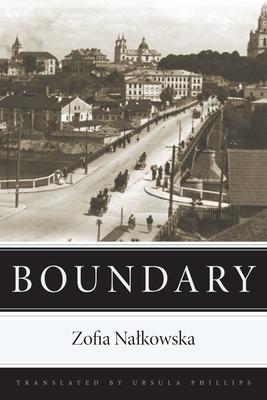Available for the first time in English, Zofia Nalkowska's Boundary was originally published as Granica in Poland in 1935. The modernist novel was widely discussed upon its publication and praised for its psychological realism and stylistic and compositional artistry. Over the years, it has been translated into several languages and made into a feature film, and remains a standard text in the Polish secondary school curriculum.
Nalkowska was a pioneer of feminist fiction in Central Europe. Her observation of inequality in the treatment of men and women is at the heart of Boundary, which explores a transgressive love affair and its repercussions. She perceived that men--especially of the upper and middle classes--felt free to have sexual relations with lower class women, whereas it was not socially acceptable for women of any class to have sexual relations outside of marriage, or even admit to enjoying sex. This meant that working class women were seduced and then abandoned when they became pregnant, leaving them with the stigma of illegitimate children and the problem of finding work. Meanwhile, the higher class wives found themselves betrayed. While Boundary can be interpreted as a novel about power and its abuses, it contains several dimensions--philosophical, emotional, existential, moral--that render it a consummate piece of social criticism. An elegantly composed work of imaginative fiction, it does not preach or offer solutions. Ursula Phillips's excellent translation will interest readers of early twentieth century novels and scholars and students of Polish literature, feminist studies, and European modernism.
